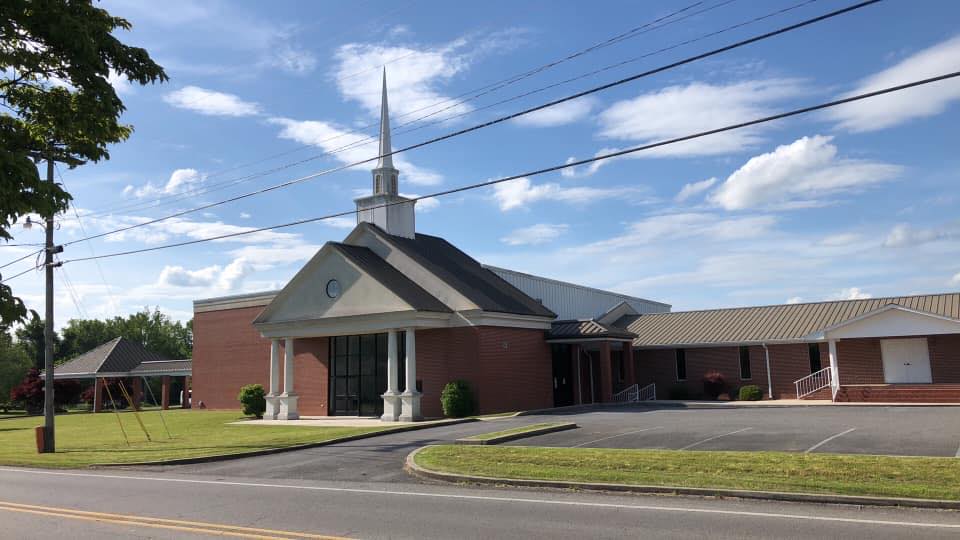There seems to be a great deal of truth in the saying, “Something got lost in the translation.”
Hearing information in one’s native language can indeed make a great difference in understanding.
And that is just the point of a new emphasis to equip pastors of Spanish-speaking congregations through conferences conducted in their own language.
Called Basic Training for Church Planters, the three-day session is designed to help pastors of Spanish-speaking congregations to develop a vision for their church and to strive for growth and discipleship, said Richard Alford, director of language missions with the Alabama Baptist State Board of Missions.
The first such conference was held in 2002 at Shocco Springs Baptist Conference Center in Talladega and was attended by 25–30 people, almost everyone who was invited. The next one is tentatively slated for 2004, he said.
Alford explained that the Hispanic population accounts for the largest growth in the state. The 1990 census figure indicated a population of around 23,000 in Alabama. By the 2000 census, Alford said, the number had risen to about 75,000. The true figure now may be closer to 200,000 because some in that population group may have gone uncounted in census efforts.
To address the spiritual needs of this population, 28 Hispanic churches have been started in the state, Alford continued. The majority of those churches are located in north and central Alabama, which is where the greatest concentrations of the Hispanic population is.
“As God calls out people (to work with these congregations), they may not be people who come with a lot of training,” said Alford.
Offering that needed training and direction is the goal of the Basic Training for Church Planters conference, which is funded through Cooperative Program monies from the Alabama Baptist State Convention. Some associations also provide financial assistance, said Alford.
The conference, Alford said, isn’t just for the pastors or “church planters,” though. Also invited are spouses and mentors, who may be the director of missions for a particular association or an experienced pastor, for example.
Spouses, he explained, are very valuable in this team approach. The role of the family is important in the Hispanic community. Plus, the pastor’s wife can be a support system for her husband.
Carlos Gomez, the Hispanic pastor at First Baptist Church, Center Point, in Birmingham Association for four years, was encouraged that wives were included in the conference. The wife of an Hispanic pastor, he explained, is her husband’s “right hand,” so to speak. She may deal mostly with people who have limited or no knowledge of English. Therefore, she may not have had much opportunity to learn English herself.
Conducting the conference in Spanish allows the wives to receive instruction on how they can be more helpful in the church planting ministry too, he said.
Spanish version
Though fluent in English, Gomez found the Spanish conference to be quite beneficial. Hearing information in Spanish can make a tremendous difference in the amount that is absorbed. In addition, he said, translations are not always effective on every point.
Gomez noted that the conference was conducted by people who had planted churches. They offered practical information and often tackled questions before attendees even had the chance to ask them.
The aim of the conference, which Alford described as “three days of hard work,” is to help pastors in the early stages of planting — in the first six months to a year.
“It’s designed to give them a comprehensive understanding of what they’re doing,” he said.
Among the topics Alford said the conference covers are having a vision, formulating a missions statement, developing relationships, evangelizing, identifying the core group, developing leadership and establishing “mileposts” in order to evaluate progress.
Gomez pointed out that the conference gives planters direction on where to seek advice, how to make visits, approach and solve problems. Attendees were apprised as well of the assistance and resources available through associational offices and directors of missions.
Gomez, whose own church has seen three others (in Birmingham, Pinson and Trussville) grow from it, called the conference “one of the nicest courses I have been [to].”
Currently, materials and the assistance of the North American Missions Board (NAMB) are being used for the conference, which is adapted to meet needs in the state, said Alford.
Out-of-state leaders are conducting the conference, until such time as in-state people, who are now in training, are prepared to assume the responsibility.
Hispanic missionary
Because of the significant Hispanic population in central Alabama, the State Board of Missions is working in partnership with the NAMB and participating associations to get an Hispanic missionary in that region.
For about five years now, there has been a Hispanic missionary in the north Alabama region. Alford said Ed Ables, based in Guntersville, currently is serving in that post.
“Language missions is growing in Alabama,” Alford stated. “We’re not all black and white anymore.”
Fact is, he noted, the Asian population in the state is growing at a rapid pace as well.
Already in the state are a Vietnamese Baptist church and five Korean Baptist churches, with another expected to begin in Montgomery very soon to minister to those relocating to work for Hyundai or its suppliers.
Alford said the Basic Training for Church Planters conference offered in Spanish for Hispanic pastors will be conducted in English with a multicultural focus, in order to instruct Korean and Vietnamese pastors, most of whom speak English.
If the Asian populations continue to increase, Alford sees the possibility in the future of specialized conferences for them as well.





Share with others: